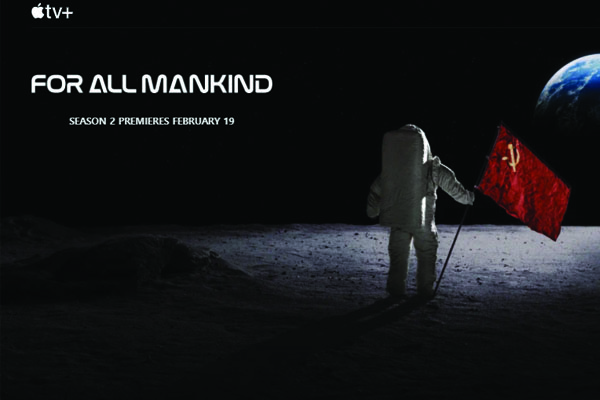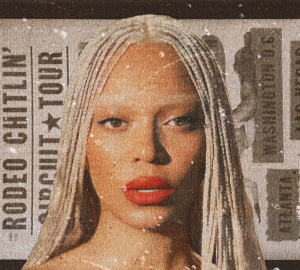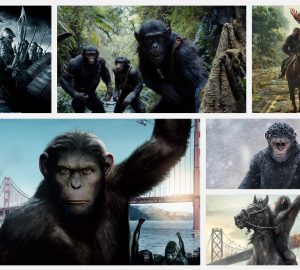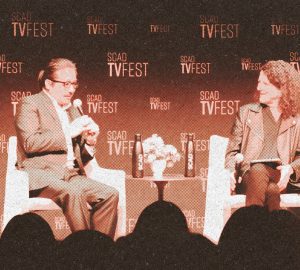“For All Mankind” comes to SCAD aTVfest

Image from AppleTV+
With Apple’s exploration into streaming this past year, “For All Mankind” has set itself apart as an intense alternate history of the space race. Currently, a 10-episode-long “what if?”, the show ended its first season with a massive rocket erupting from the ocean, adding to the moon’s colonization. Based on the real Sea Dragon rocket that was never built but intricately designed, the new season continues with Shantel VanSanten, Krys Marshall, Jodi Balfour and Sarah Jones who sat down for a Q&A with aTVfest.
Ronald D. Moore, co-creator, writer and producer for the show explained, “One of the key concepts of the show was [that it] was going to be an accelerated space program that was going to change the world in many positive ways.”
A large feature of the show that shows this change is the involvement of women in NASA. Moore suggests if the USSR won the race to the moon, then women’s rights would have advanced in the US.
“The soviets sent a woman to space years before the United States did,” Moore said. It was Valentina Tereshkova who became a national hero when she went into space in 1963. It took 20 years for NASA to send Sally Ride up. When Tereshkova made history, the race between the US and the USSR intensified but did not end. If the USSR made it to the moon and placed their flag there instead of America, Moore thinks it would have been a larger embarrassment than Tereshkova. The US would have had to “drive women into the program just to keep up with the soviets.”
This social change, however, was not accepted by everyone. Shantel VanSanten’s character, Karen, disliked NASA recruiting women, “For her it presents a threat and fear to a way of life that she knows and understands, a livelihood for her and her family. In her mind a program like NASA might not be for the better.”
Hers is a perspective we can’t forget when we look at feminists movements of the past or present. But her disapproval doesn’t last from the first episode to the finale. To prepare for season two, VanSanten said, “Her viewpoints crumble and change quite dramatically.”
Inviting women into NASA wasn’t the only relevant social issue. Danielle, played by Krys Marshall, is a black woman heading for the stars in the middle of the civil rights era. Her entrance to NASA’s program was alienating except for Tracey’s, played by Sarah Jones, greeting.
When astronaut candidates (affectionately called “ascans” by the cast) first met each other, all eyes were on Danielle as she entered the room.
“It wasn’t scripted that Sarah (Jones) make that choice. She just turned to me and she said, ‘On the next take I’m gonna do something and I’m gonna surprise you.’”
The next take- the aired take- showed Tracey sitting down to Danielle and saying, “I’m Tracey.”
“The reaction of me gleefully whispering, ‘I’m Danielle’ is 100% what [happened]. It just shocked the hell out of me because I, Krys, was feeling… 30 women in a room staring at [me].”
The moment shows the theme not only of feminism throughout the show but also friendship. As the Cold War heats up on screen, those friendships will have to stand the tests of space and time.
“For All Mankind” is available on AppleTV+ and the new season is expected to premiere on February 19, 2021.



























